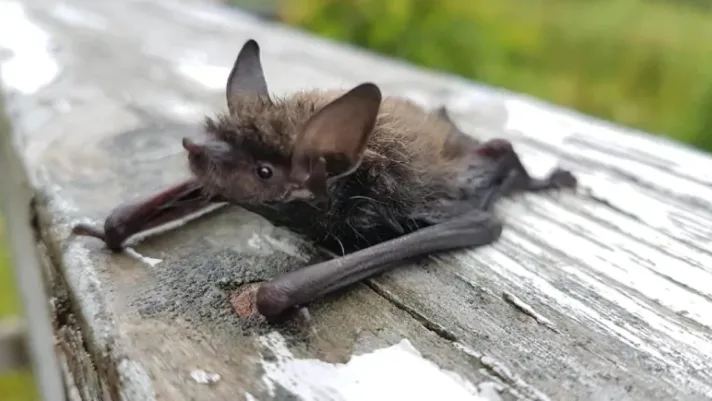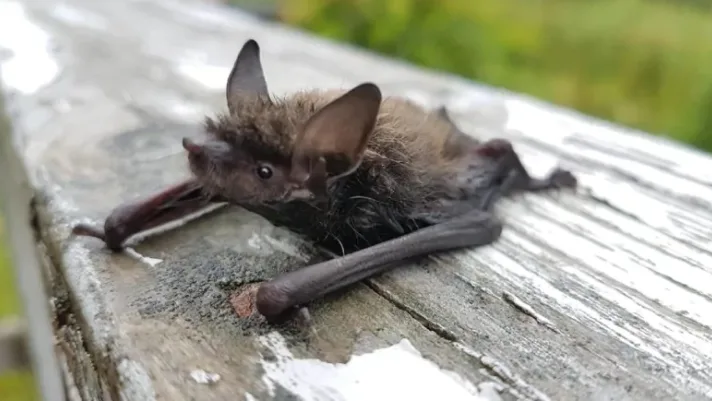
Multiple bats with rabies found in the GTA
Two rabid bats have been found in Halton Region, and it's prompting a public health call for anyone who might have come into contact with them.
Halton Region Health Department issued a statement Thursday saying it had found a rabid bat in Oakville, and another in Burlington.
The latter case was confirmed Aug. 7 with a bat found around Upper Middle Road and Cavendish Drive. In Oakville, the rabid bat was around Lakeshore Road and Bronte Road. The bats are the first confirmed cases of rabies in Halton this year.
"The health department is reminding residents to avoid all contact with bats and other wild animals," said Hamidah Meghani, the region's medical officer of health. "Anyone who comes in physical contact with a bat or other wild animal should see a physician immediately and contact the health department."

Halton Region has two new cases of bat rabies. (Janine Doucet-d'Eon/Mersey Tobeatic Research Institute)
Rabies is most commonly spread by wild animals, including raccoons, skunks, foxes, bats, as well as stray or unknown cats and dogs.
The virus is transmitted through the saliva of an infected animal, usually through a bite. Saliva can also enter the body through scratches and open wounds, or through the mouth, nose and eyes.
Once inside the body, the rabies virus attacks the nervous system and brain, leading to muscle spasms, aggressive behaviour and seizures. To date, only 20 cases of humans surviving infection have been recorded according to the Centres for Disease Control and Prevention.
Hamilton currently has an outbreak of rabies among the city's population of raccoons and skunks with 327 animals testing positive since December 2015, Hamilton public health said earlier this year. Last month, the city reported its first case of bat rabies in two years.
Here's a list of tips from Halton's health department:
Seek medical attention right away if you come in contact with a raccoon, skunk, bat or other potentially rabid animal.
Report animal bites or scratches to the health department.
Warn your children to stay away from wild, stray or aggressive animals.
Do not feed or keep wild animals as pets.
Do not touch dead or sick animals.
Make sure your pet's rabies vaccinations are up to date.
Keep your pet on a leash when off your property.
Have your pet seen by a veterinarian if it has come in contact with a raccoon or other wild animal.
Anyone who's had physical contact with a bat should call the Halton health department at 311.
This article was originally published by CBC News.









